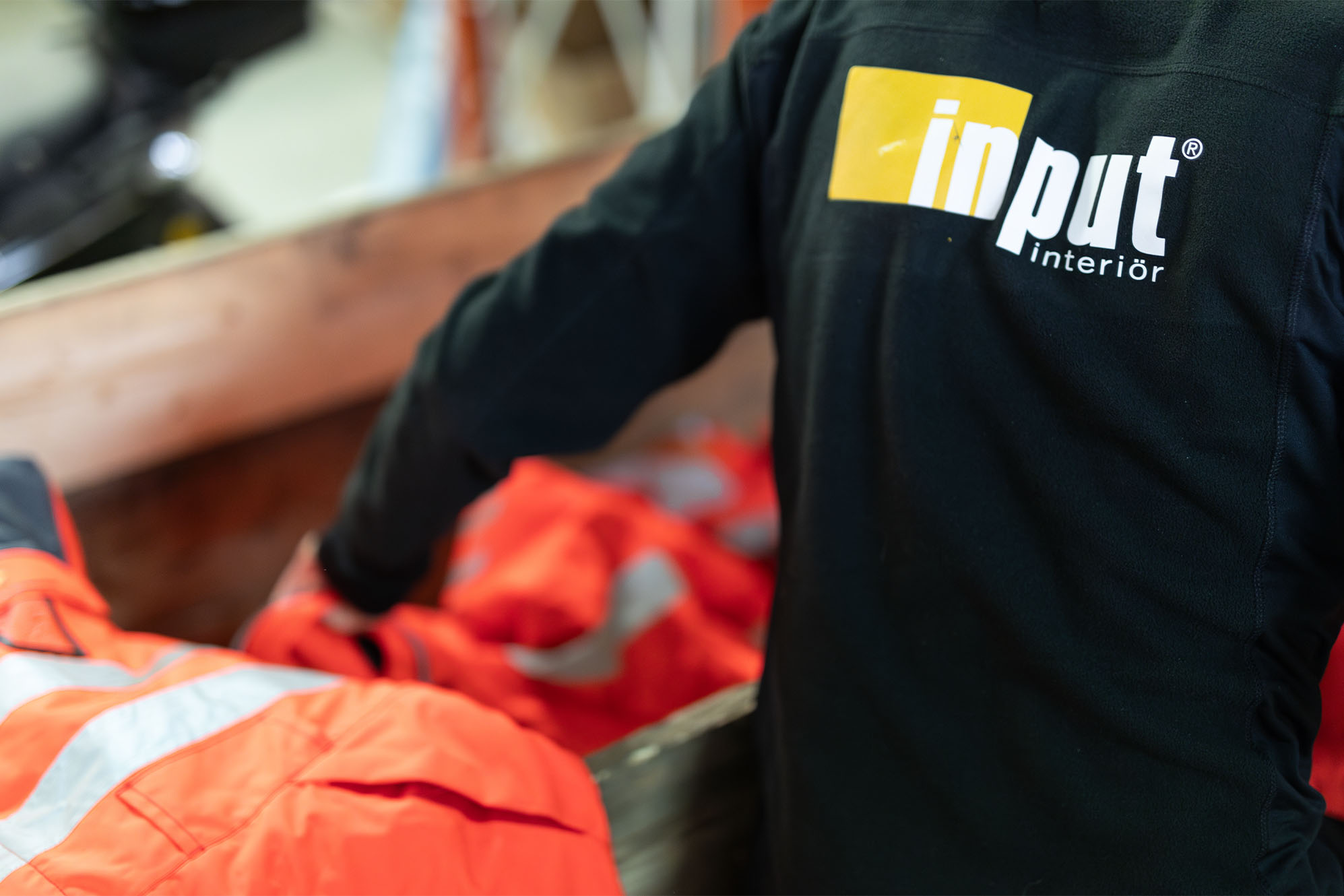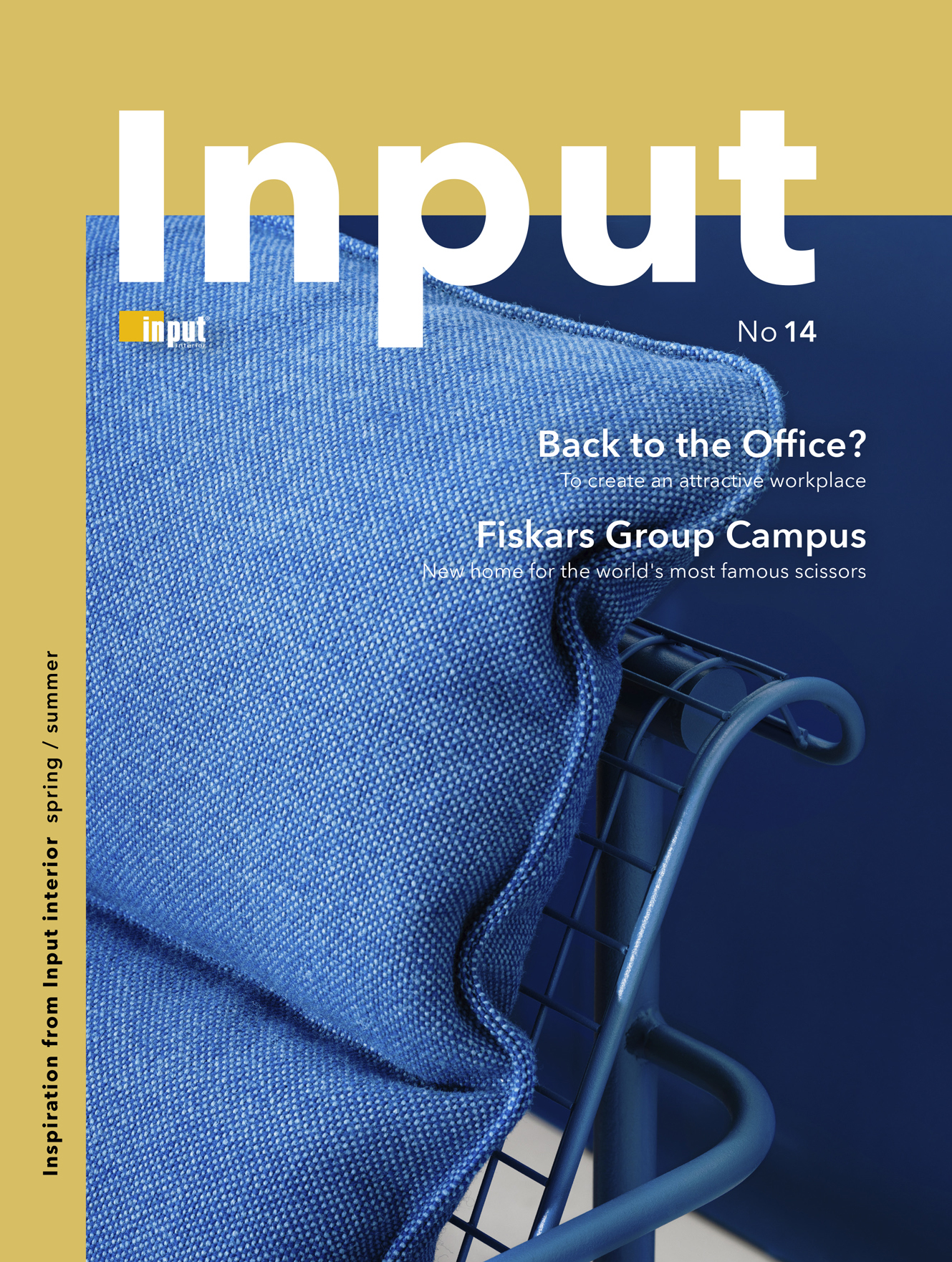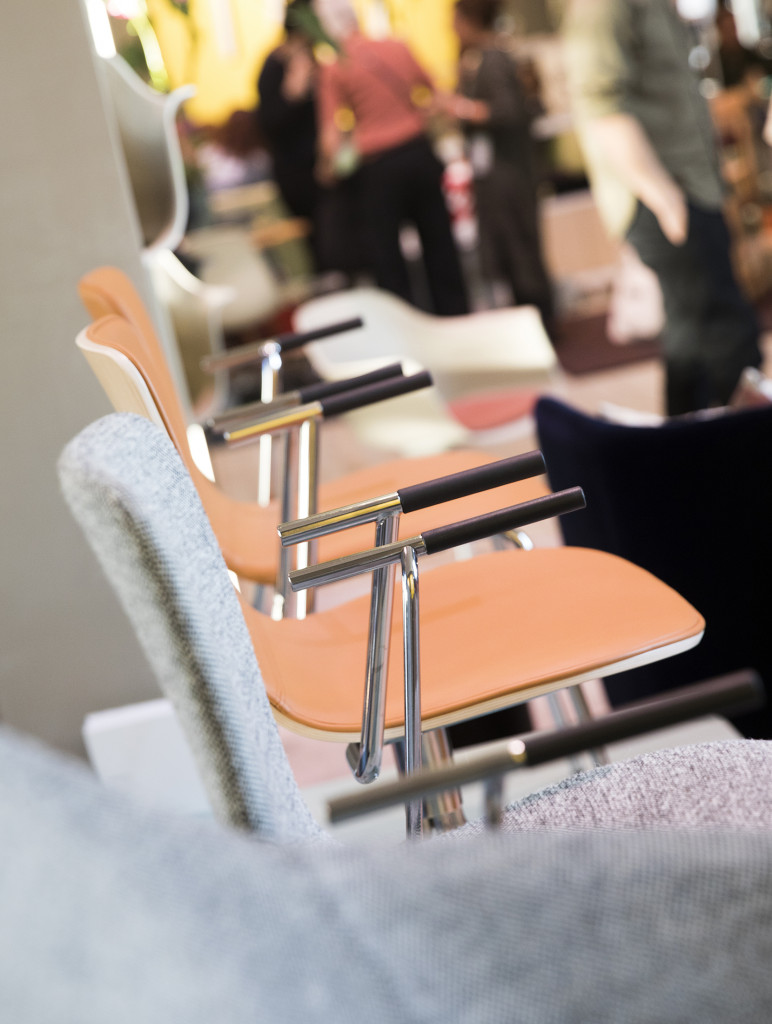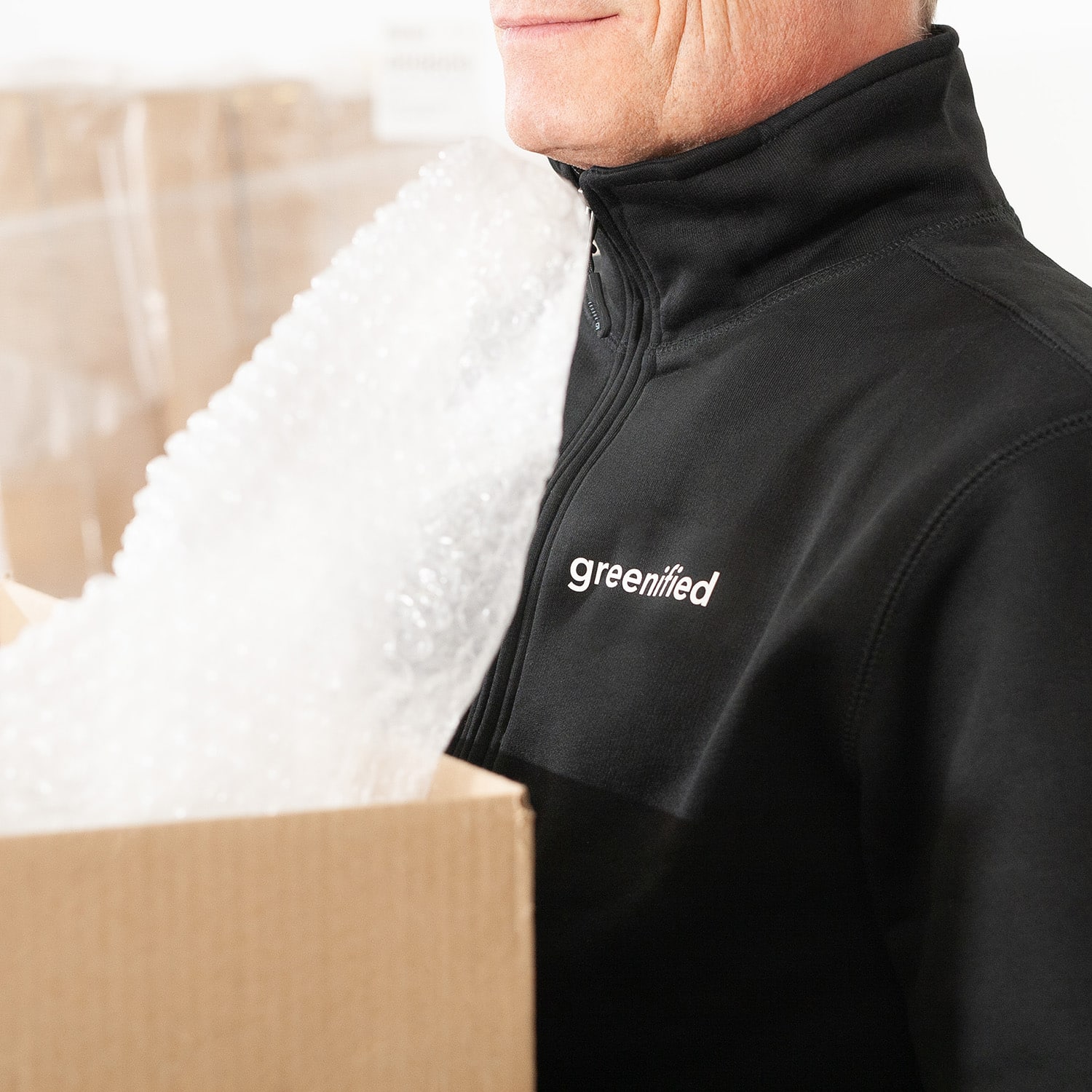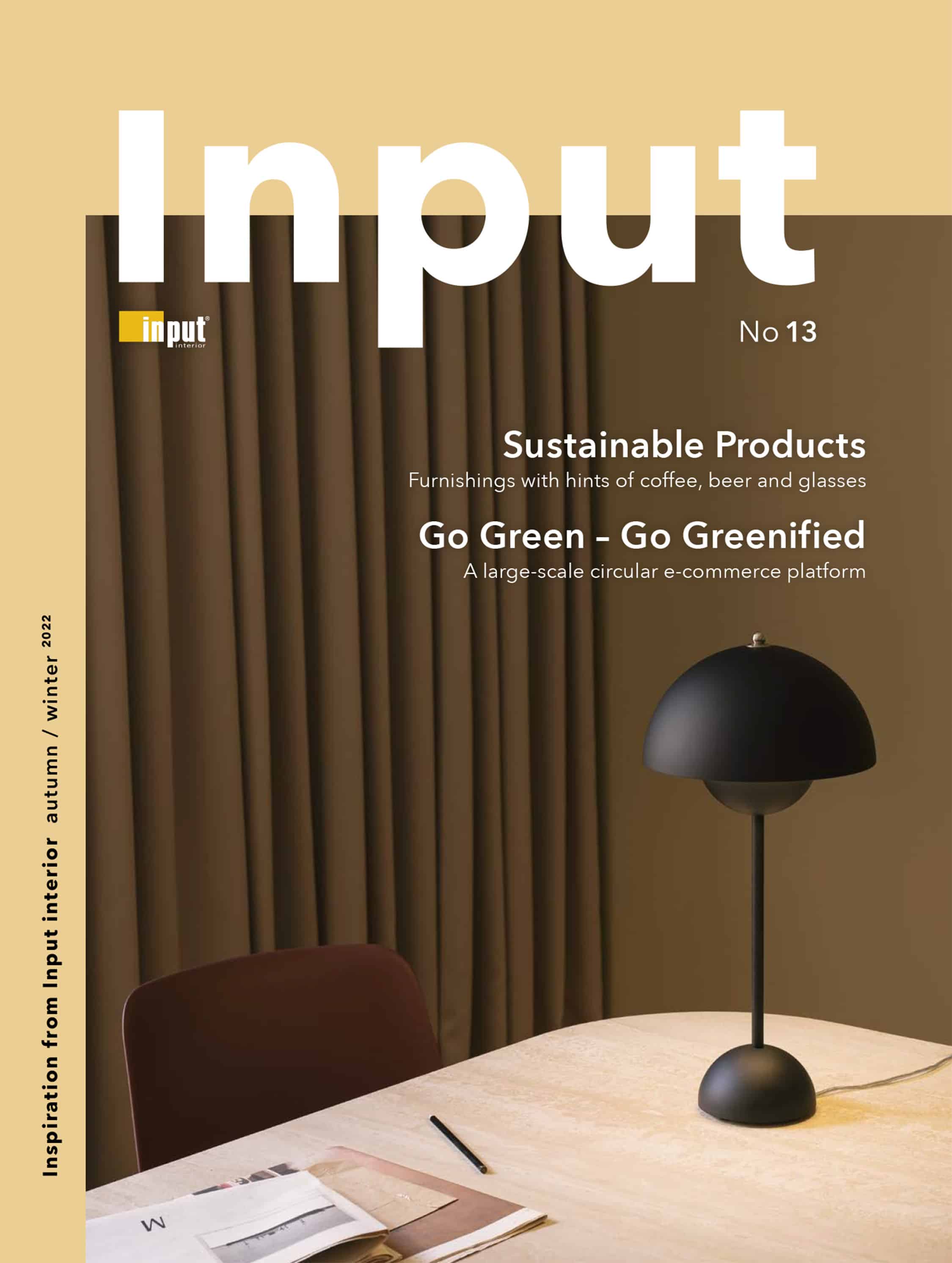Public-sector workwear turned into table tops
When the Norwegian Public Roads Administration wanted to put its surplus workwear to good use, it turned to Input interior. Creativity and a large network of contacts have helped transform several tonnes of clothing and textiles into durable table tops.
The Norwegian Public Roads Administration is responsible for the country’s national and European roads and is expressly working to transition from a linear to a circular economy. Reuse and recycling of materials intended for construction and maintenance activities are the authority’s primary means of reducing climate impact.
They are now applying the same philosophy to recycling of staff workwear and footwear. A pilot project was launched by Sindre Røstad, senior advisor for procurement at the Norwegian Public Roads Administration, after meeting with Terje Kristiansen, COO of Input interior Norway.
“The Norwegian Public Roads Administration has the same aim as we do here at Input interior, to contribute to circular flows and a sustainable future. To accomplish this, innovation and collaboration between sectors is required. It’s a matter of daring to break the mould and spot possibilities in any element of an operation,” says Terje.

With 5,000 employees at 172 locations throughout the country, the authority has a huge turnover of workwear. Before Input interior suggested an alternative option for disposing of surplus clothing, any that was not reused was sent for incineration.
“First off, the clothing should be reused in the workplace, even if someone has left. That’s the most resource-efficient and sustainable option. When that’s not possible, we want to avoid incinerating it. We would rather the material be reused in other ways,” says Sindre.
A number of companies in the interior design industry have come up with environmentally friendly methods for manufacturing products. With a well-organised logistics system and a large network of contacts, Input interior has now made sure the worn-out clothing is put to good use.
“We explored the possibilities and we learned that textile manufacturer Kvadrat uses recycled material to produce durable and stylish table tops. We suggested to the Norwegian Public Roads Administration that we could collect the surplus workwear, sort it and then pass on the material to Kvadrat,” says Terje.
The idea was quickly accepted by the authority, and planning got under way not long after.
“As soon as I heard Input interior’s suggestion, I said ‘Let’s go’. It’s about us needing to make a change. We don’t earn any money by passing on the clothing, but our aim is to reduce carbon dioxide emissions and inspire others to take similar action. We are not alone in having surplus workwear and materials. I believe that this type of solution will be increasingly in demand, and if we as a public body can show the way, it may open doors for others,” says Sindre.
The first batches saw more than 3,5 tonnes of clothing collected from Oslo, Trondheim, Bergen and Tromsø by Input interior, and the next delivery to Kvadrat is already being planned.
The first textiles have now been transformed into table tops and are being used in offices across the Nordic region. When asked if any of the table tops have been installed in their offices, Sindre’s answer is positive.
“We already have three table tops installed in meetings rooms in our new Oslo headquarters, and we plan for new ones on more locations. That is circular economy in action, for sure,” concludes Sindre.
